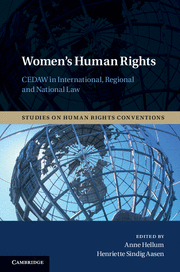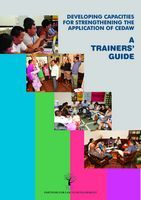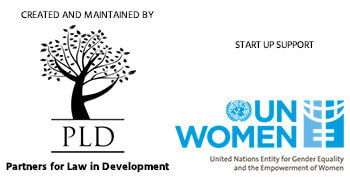DHAKA (29 May 2013) – At the end of her 10-day visit to Bangladesh, the UN Special Rapporteur on violence against women, its causes and consequences, Ms. Rashida Manjoo, delivered the following statement:
“I have been mandated by the Human Rights Council to seek and receive information on violence against women, its causes and consequences, and to recommend measures to eliminate all forms of violence against women.
I would like to begin by expressing my appreciation to the Government of Bangladesh for having invited me to visit the country from 19 to 29 May.
During my visit, I held meetings in Dhaka, Chittagong, Rangamati, Khulna and Jessore. Among others, I visited institutions such as the Dhaka Medical Hospital, which houses the One Stop Crisis Centre and the only burn unit in the country, a government shelter in Dhaka and an NGO-run Shelter in Jessore. I also visited a Special Tribunal on Violence against Women and Children and the Women’s ward in the Dhaka Central Jail.
I am grateful to all my interlocutors, including State authorities, as well as representatives of civil society organizations, and United Nations agencies.
Most importantly, I wish to thank the individual women who shared their personal experiences of violence and survival with me.
My country visits to States where there are refugee camps include visits to such camps to assess the situation of women especially in terms of manifestations of violence against them. I have received reports of human rights violations, including sexual and gender based violence, occurring in the Kutupalong refugee camp which houses the Rohinga community in Cox’s Bazar, Bangladesh. It is regrettable that I was denied access to the camp by Government authorities, thus preventing me from assessing the situation directly, including through interactions with women residents of the camp.
Violence against women is the most pervasive human rights violation that we face today. It is a cause and a consequence of inequality and discrimination, whether in law and/or practice, and it is a source of deep concern globally, especially as it substantively impacts the effective exercise of citizenship rights by women. Every country in the world has the responsibility to take effective measures to prevent and respond to all forms of violence against women, and, it is ultimately up to State authorities to make elimination of violence a priority. Violence against women cannot be addressed in isolation of context, including the historical, political, economic, social and cultural contexts and realities that impact and shape the lives of women.
During my visit to Bangladesh, I have received information from both State and non-state actors about numerous manifestations of violence against women, its causes and consequences. However, adequate data and information on all forms of violence against women as well as root causes are still largely unavailable, as was also noted by the Committee on the Elimination of Discrimination against Women (CEDAW) in its consideration of Bangladesh’s periodic report in 2011.
According to interlocutors, the most pervasive form of violence against women in Bangladesh is domestic violence, with an estimated 60% of married women reported to having experienced violence at the hands of a spouse and/or in-laws. Other manifestations of violence include: different forms of sexual violence including rape and eve-teasing; discrimination and violence based on ethnicity, religion, caste, indigenous status, disability, or work; dowry-related violence; sexual harassment; forced and/or early marriages; acid attacks; psychological violence in custodial settings; economic exploitation and cross-border trafficking, among others. Harmful customary and religious practices and violence perpetrated against minorities were also highlighted in numerous testimonies.
Despite efforts made towards the empowerment of women, I have noted with concern the strong persistence of patriarchal attitudes towards women as well as stereotypical views regarding what their roles and responsibilities should be. Such attitudes and behaviours have the effect of perpetuating discrimination against women and girls, and contribute to the continuation of violence against them.
Laws and institutional mechanisms
The Government of Bangladesh has recognized the importance of upholding and protecting the rights of women by signing and ratifying numerous international human rights instruments, including the Convention on the Elimination of all forms of Discrimination against Women (CEDAW).
However, I am concerned about Bangladesh’s reservations to articles 2 and 16.1 (c) of CEDAW, which respectively address the core obligation of States to eliminate discrimination under law (Art 2) and to eliminate discrimination in marriage and family relations (Art 16). As indicated by the CEDAW Committee, such reservations are incompatible with the object and purpose of the Convention, are impermissible under international law and should be withdrawn. During my visit, I was informed that the withdrawal of those reservations was currently under consideration. I strongly encourage the Government to expedite this process.
The Constitution of Bangladesh guarantees equal rights to men and women, albeit only in the spheres of the State and of public life, and not in the private sphere. This is a source of concern, as inequality and discrimination are pervasive in the private sphere and thus constitutional protection to rights of equality and non-discrimination should therefore be extended to all spheres. Some efforts have been made towards the empowerment of women and to increase women’s political participation, including through reserved seats and quotas. I am encouraged to see some high-level positions occupied by women; however, women still hold only 20% of the seats in Parliament. Bangladesh also serves as a good example as regards its deployment of women officers in peacekeeping missions around the world.
I commend the steps taken by the Government of Bangladesh towards legislative, policy and programmatic measures to address the development needs of women generally, and violence against women specifically. Over the past two decades, numerous laws, including amendments to existing laws, have been enacted to address various manifestations of violence against women. Among others, these include the Dowry Prohibition Act (1980), the Prevention of Women and Children Repression Act, (2000), the Acid Crime Control Act (2002), the Bangladesh Labour Act (2006), the Citizenship Amendment Act (2009), the Domestic Violence (Prevention and Protection) Act (2010), the Hindu Marriage Registration Act (2012) and the Human Trafficking Deterrence and Suppression Act (2012).
As regards policy and institutional mechanisms, I take note of the Government’s National Development Policies on Women and Children adopted in 2011, gender-sensitive budget initiatives and also the establishment in 2010 of the National Human Rights Commission. I welcome the Government’s efforts to eliminate violence against women through various initiatives including the Ministry of Women and Children’s Affairs Multi-sectoral Programme on Violence against Women, which includes the One Stop Crisis Centres, the creation of a national helpline, the establishment of a national trauma centre, and the prevention cells. The Joint Violence against Women program, initiated by UN agencies, is another partnership project with various Government ministries. I also welcome the Government’s efforts to ensure an efficient and effective police service by encouraging the participation of women in the Bangladeshi Police at all ranks, increasing gender awareness, and improving victim support services through the Police Reform Programme.
Many of the initiatives I have mentioned have been created through public/private partnerships, with the support of United Nations agencies, the State and donors. The role of civil society organizations in particular must be acknowledged as they continue to provide services for victims of violence, including through counselling, legal aid, shelters, micro-credit schemes and other income generating activities. Although these efforts are complementing the mechanisms put in place by the Government, the core obligation to act with due diligence to eliminate violence against women, remains a State responsibility.
I congratulate the Government of Bangladesh for achieving gender parity in primary and secondary education at the national level. This positive development has been made possible by some specific interventions focusing on girl students, such as stipends and exemption of tuition fees for girls in rural areas, and the stipend scheme for girls at the secondary level. However, I am concerned that remaining challenges such as unregulated religious educational establishments which foster harmful gender stereotypes, poverty, early marriages, security issues, the prevailing level of violence against girls, harassment by both teachers and fellow pupils, and absence of suitable toilet facilities for girls, continue to result in high dropout rates among girls, especially in rural areas. Persistent sexual harassment in school is a cause of great distress for young girls and has resulted in school dropouts as well as cases of suicides, according to the testimonies that I have received.
Gaps and Challenges
Despite the developments I have noted, discrimination and violence against women continues in law and practice. For instance, Bangladesh’s personal laws governing marriage, separation, and divorce sets out separate rules for different religious communities. In practice such laws sometimes afford men greater power than women, notably in marriage and divorce. I heard many calls for the Government to consider adopting a unified family code, thereby ensuring equal treatment to all citizens, and also more specifically, protecting the rights of women.
Furthermore, numerous interlocutors stated that the absence of effective implementation of existing laws was the rule rather than the exception, in cases of violence against women. I was also informed about other challenges in relation to access to justice as reflected in women’s experiences in accessing the justice system, lack of a responsive environment, and the absence of necessary legislative frameworks in some instances. This was further confirmed by women prisoners who also indicated serious challenges in the application of due process standards in courts.
Despite measures such as the establishment of the Special Tribunal on Violence against Women and Children, I have received several testimonies demonstrating how women are reluctant to use the justice system and often opt for alternate dispute resolution (ADR).The reasons articulated include delays in court procedures, fear of retaliation, lack of female friendly police officers, and social stigma. Further challenges that have a negative impact on women’s access to remedies include the lack of reporting, the use of mediation and conciliation to solve incidents of violence, and the lack of proper documentation and evidence gathering to support cases. There is also a tendency for women to “compromise” on their cases in view of the prolonged delays experienced through the judicial process. This not only has an impact on the right of women to an effective remedy and equal access to justice, but it is also an impediment to building valuable jurisprudence on women’s human rights. With the effective institutionalisation of the National Legal Aid Services Organization, it is my hope that accountability for violations of women’s human rights is increasingly addressed in the justice system.
The human rights situation of tribal/indigenous peoples and minorities was raised in numerous meetings where I was informed that minority groups generally, and women in particular, suffer multiple and intersecting forms of discrimination in various areas of life. During my visit to Chittagong and Rangamati I heard many testimonies highlighting gaps in the implementation of the peace accord that was signed to settle the conflict in 1997 and the continuing presence of both the military and settlers on land currently largely occupied by tribal/indigenous peoples. Numerous testimonies referred to cases of violence or threats of violence against tribal/indigenous women by settlers as a tactic used to scare them off their lands. This has resulted in displacement, forced evictions and landlessness in some instances. As regards the issue of sexual violence against tribal/indigenous women, I was informed today about research carried out by the Government which reflects that such incidents constitute less than 8% of the national rape statistics. I was also informed about the current review by the Government of the Land Act and Commission as reflected in the Peace Accord and I strongly encourage the Government to ensure effective implementation of all provisions of the Peace Accord.
I am concerned with the fact that existing schemes aimed at empowering women economically, seem to be tailored to specific sectors traditionally believed to be “suitable” for women, thereby perpetuating gender-biased stereotypes in employment. According to information received, a very high percentage of the informal sector labour force is comprised of women who work mainly in garment factories; as domestic workers; in the shrimp cultivation sector and other low-income sectors. Many stakeholders highlighted the poor working conditions under which women have to work, which are exacerbated by the lack of adequate safeguards in labour laws and regulations and which increases their vulnerability to abuse and exploitation. The migration of women to foreign countries for domestic and other labour, also gives rise to exploitation both inside and outside Bangladesh.
In view of the current rapid economic growth being experienced by Bangladesh, there is an urgent need to challenge practices that perpetuate the view that women are cheap labour to be confined to certain types of work. Efforts must be made to create opportunities in sectors in which women are currently under-represented, and which would assist in breaking the cycles of poverty and disempowerment, and move women beyond a subsistence economy. The responsibility to achieve the latter goal rests with the State, but also with the entire supply chain in industries where women are employed and where there is an absence of rigorous regulation.
Conclusion
Several human rights mechanisms have addressed the violation of women’s human rights in Bangladesh. The substance of some relevant recommendations addresses the following issues:
Adopt without delay a uniform Family Code that fully complies with the provisions of CEDAW (UPR)
- Extend the application of the guarantees of equal rights between women and men to the private sphere in its Constitution in line with articles 1 and 2 of the Convention and in other appropriate legislation (CEDAW)
- Ensure that all forms of violence against women and girls, including domestic violence and all forms of sexual abuse are criminalized, that perpetrators are prosecuted and punished and that the women and girls who are victims of violence have access to immediate means of redress, rehabilitation and protection (CEDAW)
- Remove any impediment faced by women in gaining access to justice and ensure that shalish decisions do not violate laws and do not lead to extra-judicial penalties (CEDAW)
- Take effective measures to ensure the implementation of the existing legal framework including enactment of legislation on sexual harassment (CEDAW)
- Take further urgent legislative measures to prohibit early and forced marriages and other traditional practices harmful to the health and development of boys as well as girls (CRC, UPR)
- Implement effective measures to guarantee to all Bangladeshis, without distinction based on race, colour, descent, or national or ethnic origin, the right to security of person and protection by the State against violence or bodily harm (CERD)
In conclusion, it is imperative to ensure specificity in addressing the multiple and intersecting inequalities and discrimination that women face. I would like to reiterate the need for holistic solutions which address both the individual empowerment of women, and also the social, economic and cultural barriers that are a reality in the lives of women. Empowerment must be coupled with social transformation to address the systemic and structural causes of inequality and discrimination, which most often lead to violence against women. A legislative and policy approach will not bring about substantive change if it is not implemented within such a holistic approach. The provision of remedies that ultimately address the continuum of discrimination and violence, and also the pervasive culture of impunity, mandates that accountability for acts of violence against women should be the norm and not the exception.
My findings will be discussed in a comprehensive report that I will present to the United Nations Human Rights Council in June 2014.”
ENDS
Ms. Rashida Manjoo (South Africa) was appointed Special Rapporteur on Violence against women, its causes and consequences in June 2009 by the UN Human Rights Council. As Special Rapporteur, she is independent from any Government or organization and serves in her individual capacity. Ms. Manjoo also holds a part-time position as a Professor in the Department of Public Law of the University of Cape Town. Learn more, visit: http://www2.ohchr.org/english/issues/women/rapporteur/index.htm
TAGS: VAW










